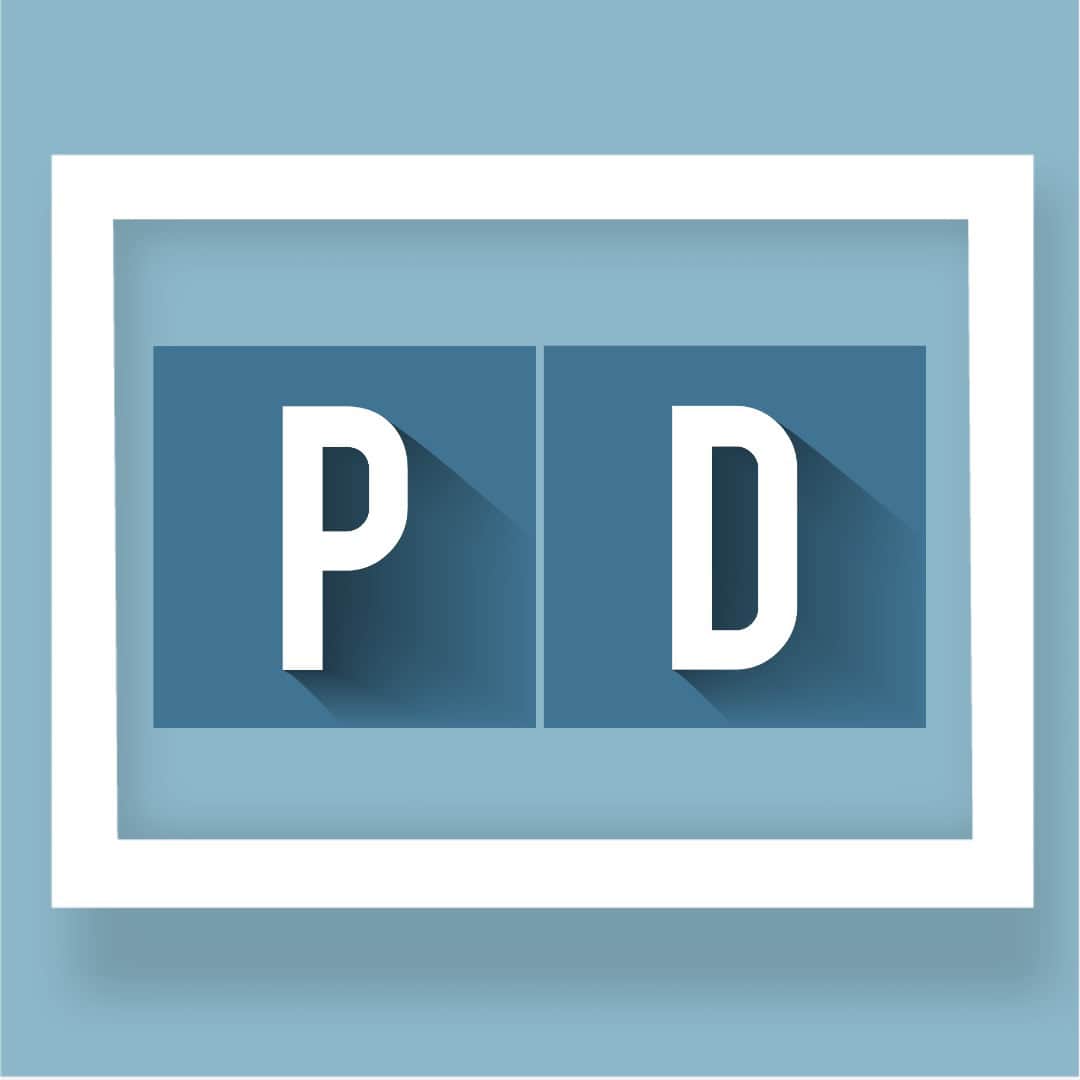Mine is a common story, but you don’t hear it told very often. My startup failed. I started a company based on a technology idea. I raised a bunch of money. I put together a team of passionate, talented people. We built a product. We went to market. Everything went well, until—pretty dramatically—it didn’t. The company that I spent four years building simply evaporated. I found myself with no income, no savings, a young baby at home, and—you guessed it—no job. What did I do? Did I cry? Did I complain? Yes. I did both.
But after I did those things, I set myself up to find a job. It took me a while, and it was brutal, but it is that journey—from failed startup founder to gainfully employed product manager—that I would like to recount for you. Job hunting can be hard, and I want to share my hard-won findings with others who can use them. Also, I want to show how the tools that I picked up as a product lead helped me navigate some rough personal waters.
Who Would Hire Me Now?
My story starts the first day after I threw in the towel on my company. You can imagine the stress. How would I find my feet? What job could I do? Who would hire me now? I had no idea where to start. Out of instinct, I resorted to the kind of product thinking I had spent four years practicing. The job hunt, I figured, was essentially an exercise in finding product/market fit. I was the product and I was looking to fit somewhere. Instead of thinking too much about the daunting task ahead of me, I simply put my head down, got out my spreadsheets and started tracking the metrics.
I set up my sales funnel and initiated the process of finding a winning strategy. I would focus on each step of the job-hunting process in order: application, first-round interview, second-round interview and final interview.
The only job I really wanted was a product manager role, but keep in mind, my confidence was shot. I had just taken a great idea and a great team and flown them into the side of a mountain. I was devastated and limping through the legal and tax wreckage. I didn’t feel lucky. I didn’t want to set my sights too high because I didn’t feel like I could afford to fail. So, in order to mitigate my chances of not getting my goal position, I decided to go after two other positions as well: producer and project manager. I started with a kind of “spray and pray” strategy, hoping that if I hit up enough people, something would stick.
Looking back, that lack of focus turned out to be a wasteful mistake. But I’ll come back to that.
Now that I knew what I was applying for, I needed to figure out the best strategy to use on my application. For example, what was the best way to put together a resume? Everyone will tell you that a resume is a thing you craft after you decide which job to apply for. They will say that the raw material of your experience needs to be shaped to match each position. But is that true?
Further, what’s the best strategy for a cover letter? Those same people will also say you must tailor your cover letter to match each individual company, position and hiring manager to which you apply. They will say that only a considered, well-researched cover letter will win you a first-round interview. But again, is that actually true?
Do people actually read cover letters these days? The cover letter is a digital document, as ephemeral and ignorable as any email. I knew from experience that, as a busy team member in a fast-paced company, reading more than a couple of sentences of any missive was rare. When it did happen, it was for a specific bottom-line reason, like a contract, competitive research or technology deep-dive. Someone who wanted something from me rarely got more than a brief look at the subject line.
Test Various Job Hunting Methods and Track Their Efficacy
I wanted answers to these questions. I didn’t want to waste my time following bad advice derived from someone else’s experience or pursuing strategies that didn’t fit my situation. The only way to discover the strategy that would work best for me was to test various methods and track their efficacy. I wrote custom letters and custom resumes. I sent general letters and general resumes. I tried various degrees of each, labeling each effort and waiting to hear if I got an interview.
After applying for more than 40 jobs over a month, I had enough data to make a solid strategy decision. It turned out that volume was more effective than precision. By using a template resume and letter, I won a first-round interview 15 percent of the time, and I could crank out five applications a day. If I wrote a customized cover letter and tailored my resume to the job, I would win a first-round interview slightly more often, 25 percent of the time, but it would take me one full day per application. So, in practice, a general application won an interview every one-and-a-half days, whereas a custom application took four.
It took 40 tries to figure out, but this measurement process gave me a sense of control. If I got discouraged, I would just look at the numbers and reassure myself that it was working. Most important, this data let me be confident in my strategy for the first step in the funnel. Now I could focus my attention on the second step: the screening interview.
I didn’t realize it at first, but I was bombing my first-round interviews. You never know you’re bombing an interview during the interview itself because the person you talk to is always super nice. But after more than five strikeouts, I needed some objective feedback. I enlisted friends to walk me through a typical screening-interview scenario and take notes on whether they would hire me. Right away, they were able to give me good strategic advice.
Wear Your Failures as a Badge of Honor
I was talking in an apologetic tone about the parts of my personal history that didn’t conform perfectly to the job description. The fact that my startup failed, for example, was something I wasn’t proud of, and that came through in the way I talked about it. My friends’ feedback was to “own” my failures, to turn them into the scars from a war that I should be proud to have served in. It’s true, isn’t it? You can’t have lost if you didn’t at least play the game.
Listen to What They Want You to Say
It seems I wasn’t listening enough. This is a common and understandable mistake for a job seeker. I mean, the pressure is pretty high. You’re unemployed. It’s not like you’ve got all year to find that perfect snuggly little job. You gots to work! I wasn’t paying attention to the clues the interviewer was giving me. The truth is, that first-round interviewer wants to like you. In fact, they are often telling you exactly what they want you to say. A great example is a leading question like, “What kind of people- management responsibilities did you have at your previous position?” You can assume that the interviewer is looking for an applicant with experience managing people. The answer to that question is not, “Well, I did manage people but I really liked getting out of the building and selling.”
This was probably the single best piece of advice I got during my job hunt. A friend helped me build a little resource of stories that I could rehearse and use during interviews. I put one together around teamwork, one about learning from my mistakes, one about closing a big deal and one about my professional aspirations. Then, in the interview itself, I could repurpose these stories to great effect.
And it worked. With these three strategies (speaking proudly about my past, listening closely to the interviewer and using my cadre of stories), I went through to the second round on nearly every interview. I only failed to advance if an interviewer misjudged my experience, interviewing me because they hoped I was less—or more—experienced than I was.
Perfect. I was moving down the funnel and identifying the winning strategy at each stage. Next was the second-round interview and I was on a roll.
I quickly realized, however, that the second-round interview was a totally different animal. It was most often with someone I would work with if I got the job. They had a more precise idea of the skills, attitude and style they were looking for. Their questions about my experience were far more probing. They would ask me to detail exactly what I did every day at my startup, or what decisions I made that I regretted or how I got along with my co-workers. Also, they were finely tuned to my tone. I could sense they were looking harder for red flags than that first screener. The pressure was high and I have to be honest. I blinked.
Find the Real Fit in a Job
It was in this second round that I let myself get swept up in the heat of the moment and made my biggest error. I let myself stretch the truth.
I was two months into my job search. I was temping at a publishing firm in Manhattan. As everyone knows, temping does not a living wage pay, and I was getting increasingly desperate for a real job. I had applied to an advertising agency for a producer position and in the second-round interview, I was asked if I had advertising experience. The truth was “no.” I had never worked for an ad agency. My only experience in advertising was as a startup founder who was trying to redefine advertising for online video. Looking back, it was partly my lack of advertising experience that contributed to my startup not hitting its mark. But, I blustered on that question and spun a story about closing a deal with a major broadcaster. Unfortunately, the interviewer bought it.
Perhaps the interviewer was as desperate to hire someone as I was to find a job. Perhaps, they didn’t really think through their own job requirements before interviewing me but, together, we pushed past that glaring hole in my skill set and I moved forward in the process. In fact, I got the job. The final interview was essentially a repeat of my second-round interview. I presented myself as sane and capable, and when it came time to ask about my actual advertising experience, I blustered though with my same story, selling myself on energy and willingness to learn rather than knowing what I was talking about.
I’ll skip over the gruesome details, but it turned into a horrible mess. That little fudge on the details of my experience cost me dearly. I was in over my head on the very first day. They let me flail around for six weeks, watching me make super junior mistakes, and then they finally let me go. It was perhaps the worst experience of my life. I’m not exaggerating. The combined stress of having a 6-month-old baby, falling behind on my bills and watching the guillotine blade being slowly raised above my head was very nearly the end of me.
You must find real fit. Be honest with yourself and others. Cramming your round product into a square hole will just waste resources. It doesn’t work. You cannot fudge fit. Both the best and worst thing about data-driven decision-making is that it’s clear. The product either sings or it doesn’t. You cannot fake the data in your favor. Think about your own experience. Surely there have been times when you tried to make something fit that clearly didn’t. It could have been a relationship, or a new friendship or even a new home. You thought perhaps you could adapt to it. You thought perhaps if you forced it hard enough it would eventually feel comfortable. Did it work? I didn’t think so.
The same is true in job hunting. Just because someone offers you a job does not mean it’s the right job for you. It is just as much your responsibility to pay attention to the fit as it is for the hiring manager. You know you best. They know their company best. Together, you must make sure these two things will work well together. It’s hard. I get that. As a job seeker, the pressure is on you. You want to get a job fast and it doesn’t feel, in the moment, like you have the luxury to be choosy. Let my tale disabuse you of that misconception now … please.
It Wasn’t About Me, It Was About the Detailed Work of Driving Traction
Boom. I found myself back at square one, even more broke and more stressed. Boy, was that an interesting time.
What I will say, however, is that being able to look at my job hunt spreadsheet and review my strategic findings from my last push was heartening. Just being able to inject that little bit of objectivity into the process, where it wasn’t about what a failure I was or what I did wrong or the long list of my deficiencies. It was just about following the metrics. It made me feel confident that there was a place for me, for the product I was peddling. All I had to do was pay attention to where my product was engaging customers and how to facilitate greater engagement.
Metrics-wise, this second effort was greatly improved. With more focused targeting, I was getting first-round interviews 50 percent of the time and moving through to second-round interviews. Then, in these second-round interviews, I took pains to be up front about what I was good at and the experience I had. I asked questions to get a sense of what the job would entail and dug into the requirements. This attention to fit did not go unnoticed with hiring managers. I didn’t move forward with every company, but when I did, I felt confident. There was no tension between what the job entailed and my skill set. It was a job I knew I could do, at a salary I was willing to take, and it took me only three final interviews to find and be offered a solid position at my current company.
Happy ending? Yes. Definitely. But the journey to get there was harrowing. I shudder to think where I could have ended up had I not used the product management tools of funnel analysis, product/market fit, user interviews and iteration. I’m sure without these helpful tools I would have given up much sooner. I would probably be in some less-than-happy situation, providing a lot less value to my employer.
Job hunting is not easy, and the temptation is to go for the quickest win, but let my story be a vote for data-driven decision-making. Let my story be a strong first-person example of the value of paying attention to the funnel, of working hard to find the right job fit, of using your instincts, but also taking strength from the numbers. Let my story prove that job hunting IS product management.
Author
-

Pierre-Marc Diennet, a SaaS Product Executive with 20 years of Product Management experience, has contributed to innovative ventures at companies like Royal Caribbean Cruises and Darklore Games. His expertise extends to Data Science and ML Innovation, showcasing a career marked by excellence. For questions or inquiries, please contact [email protected].
View all posts








